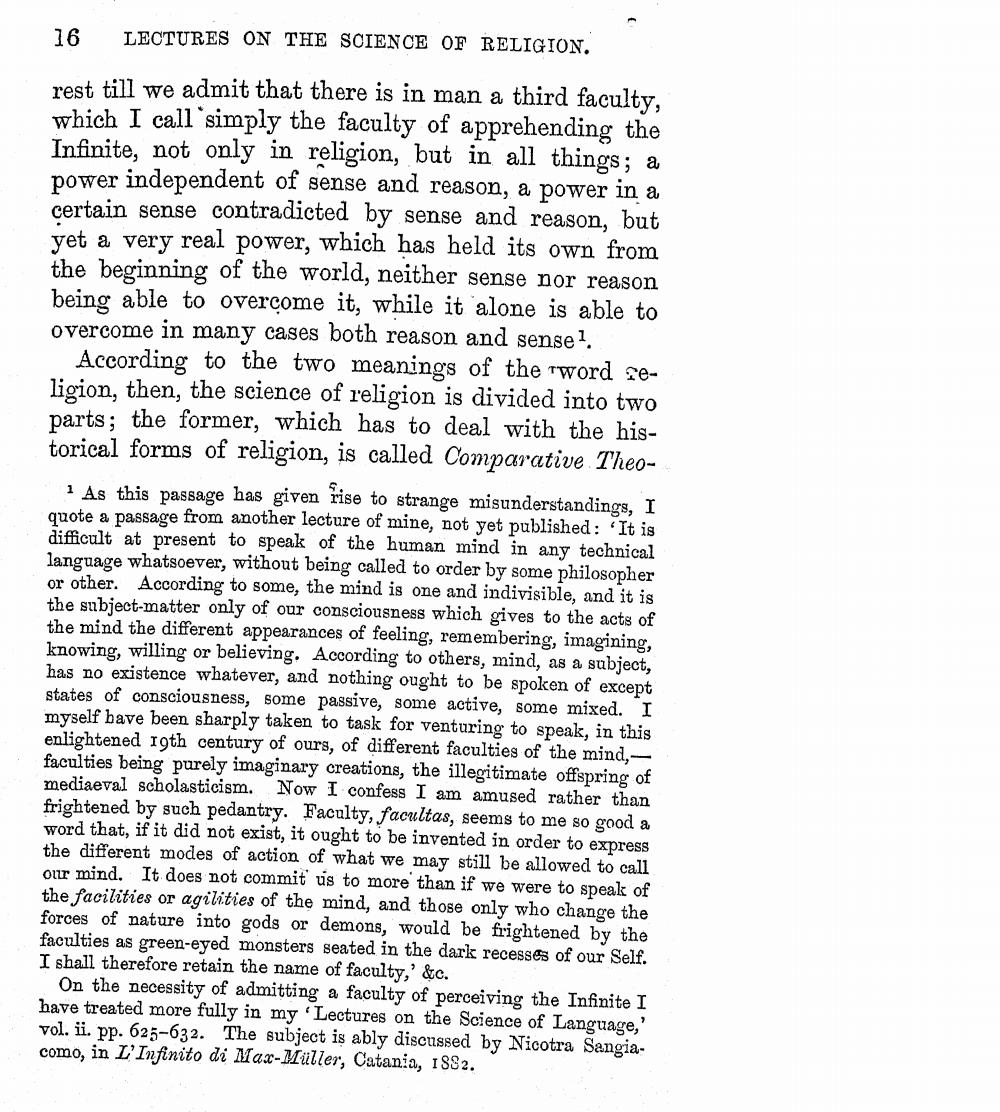________________
16
LECTURES ON THE SCIENCE OF RELIGION.
rest till we admit that there is in man a third faculty, which I call simply the faculty of apprehending the Infinite, not only in religion, but in all things; a power independent of sense and reason, a power in a certain sense contradicted by sense and reason, but yet a very real power, which has held its own from the beginning of the world, neither sense nor reason being able to overcome it, while it alone is able to overcome in many cases both reason and sense 1.
According to the two meanings of the word celigion, then, the science of religion is divided into two parts; the former, which has to deal with the historical forms of religion, is called Comparative Theo
1 As this passage has given rise to strange misunderstandings, I quote a passage from another lecture of mine, not yet published: 'It is difficult at present to speak of the human mind in any technical language whatsoever, without being called to order by some philosopher or other. According to some, the mind is one and indivisible, and it is the subject-matter only of our consciousness which gives to the acts of the mind the different appearances of feeling, remembering, imagining, knowing, willing or believing. According to others, mind, as a subject, has no existence whatever, and nothing ought to be spoken of except states of consciousness, some passive, some active, some mixed. I myself bave been sharply taken to task for venturing to speak, in this enlightened 19th century of ours, of different faculties of the mind, faculties being purely imaginary creations, the illegitimate offspring of mediaeval scholasticism. Now I confess I am amused rather than frightened by such pedantry. Faculty, facultas, seems to me so good a word that, if it did not exist, it ought to be invented in order to express the different modes of action of what we may still be allowed to call our mind. It does not commit us to more than if we were to speak of the facilities or agilities of the mind, and those only who change the forces of nature into gods or demons, would be frightened by the faculties as green-eyed monsters seated in the dark recesses of our Self. I shall therefore retain the name of faculty,' &c.
On the necessity of admitting a faculty of perceiving the Infinite I have treated more fully in my Lectures on the Science of Language,' vol. ii. pp. 625-632. The subject is ably discussed by Nicotra Sangiacomo, in L'Infinito di Max-Müller, Catania, 1882.




